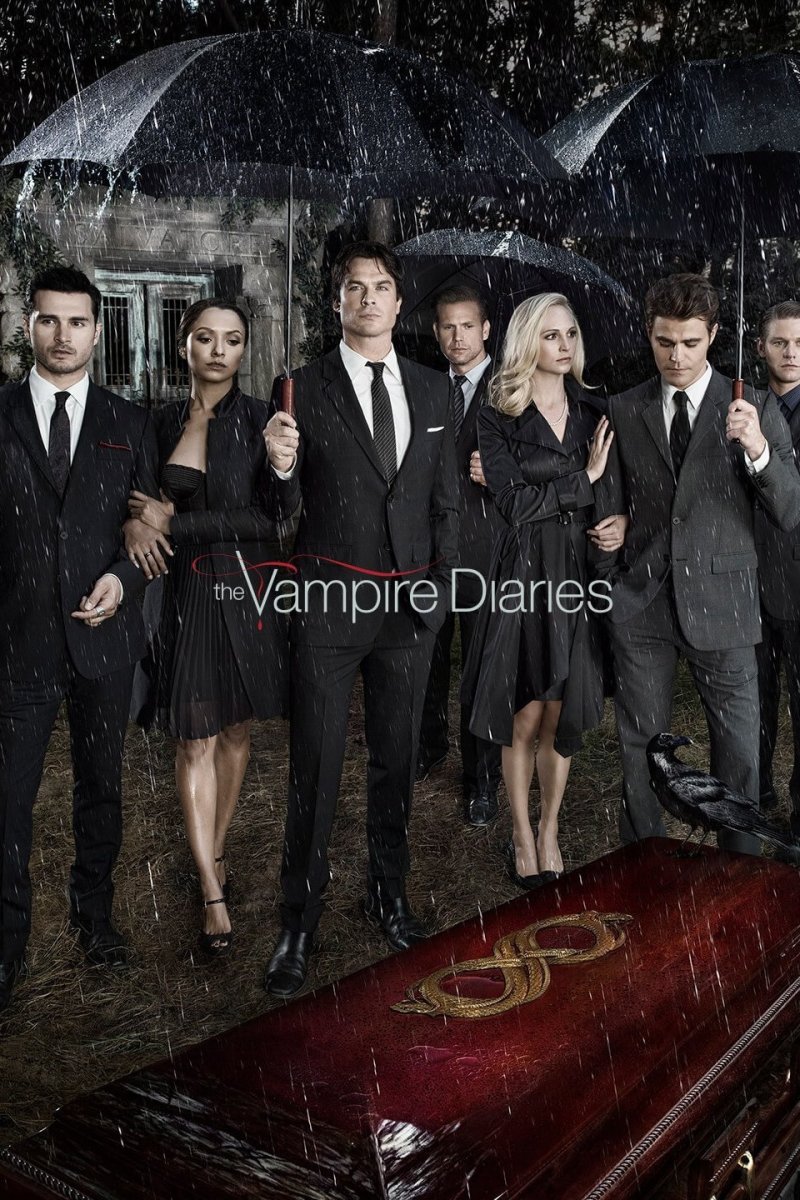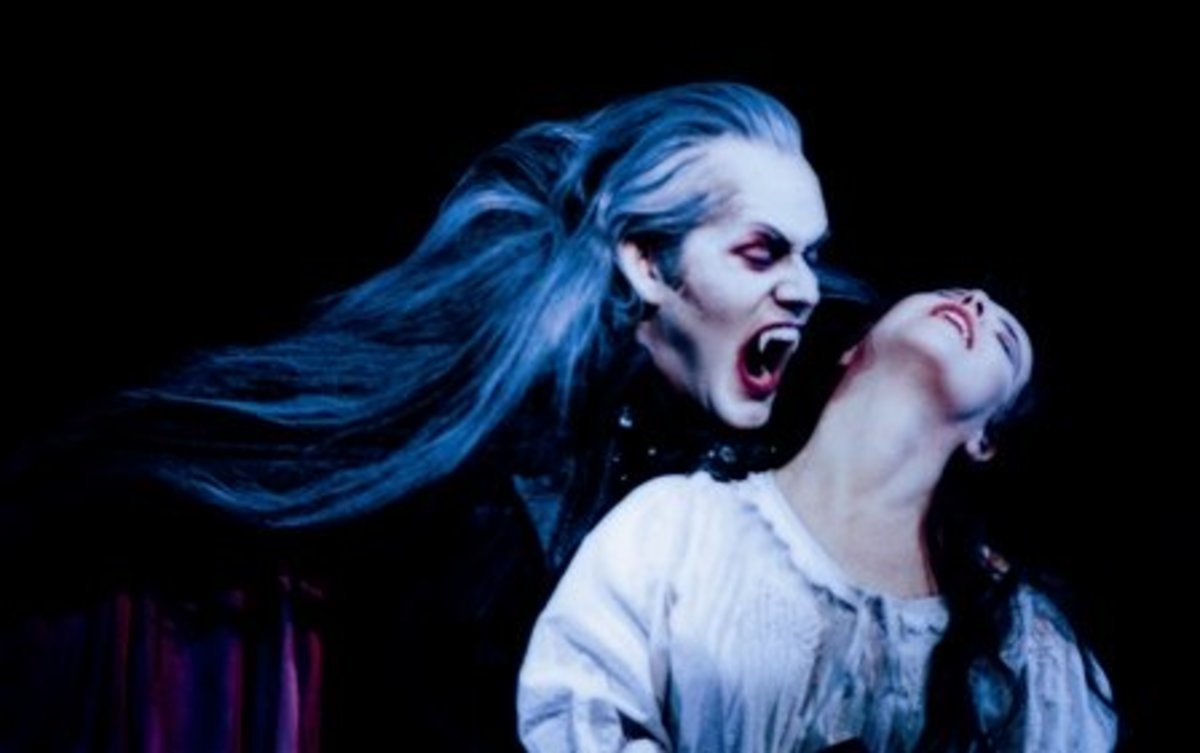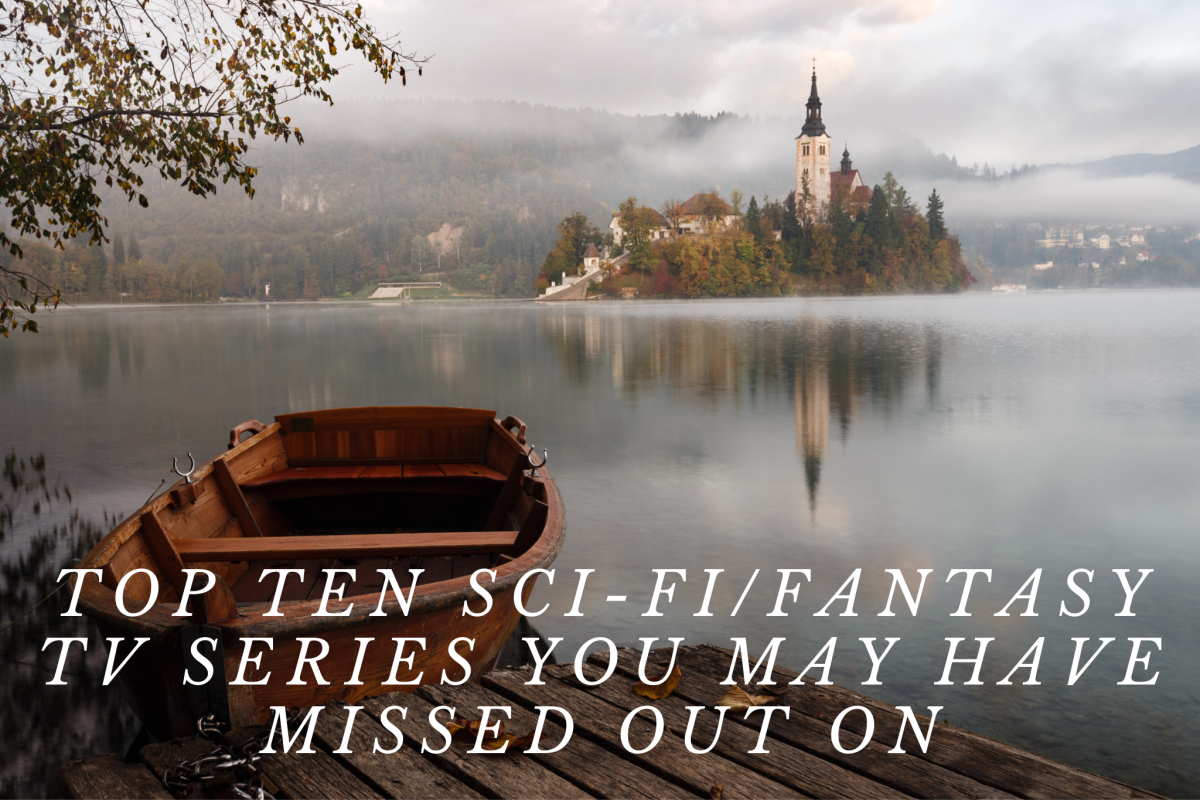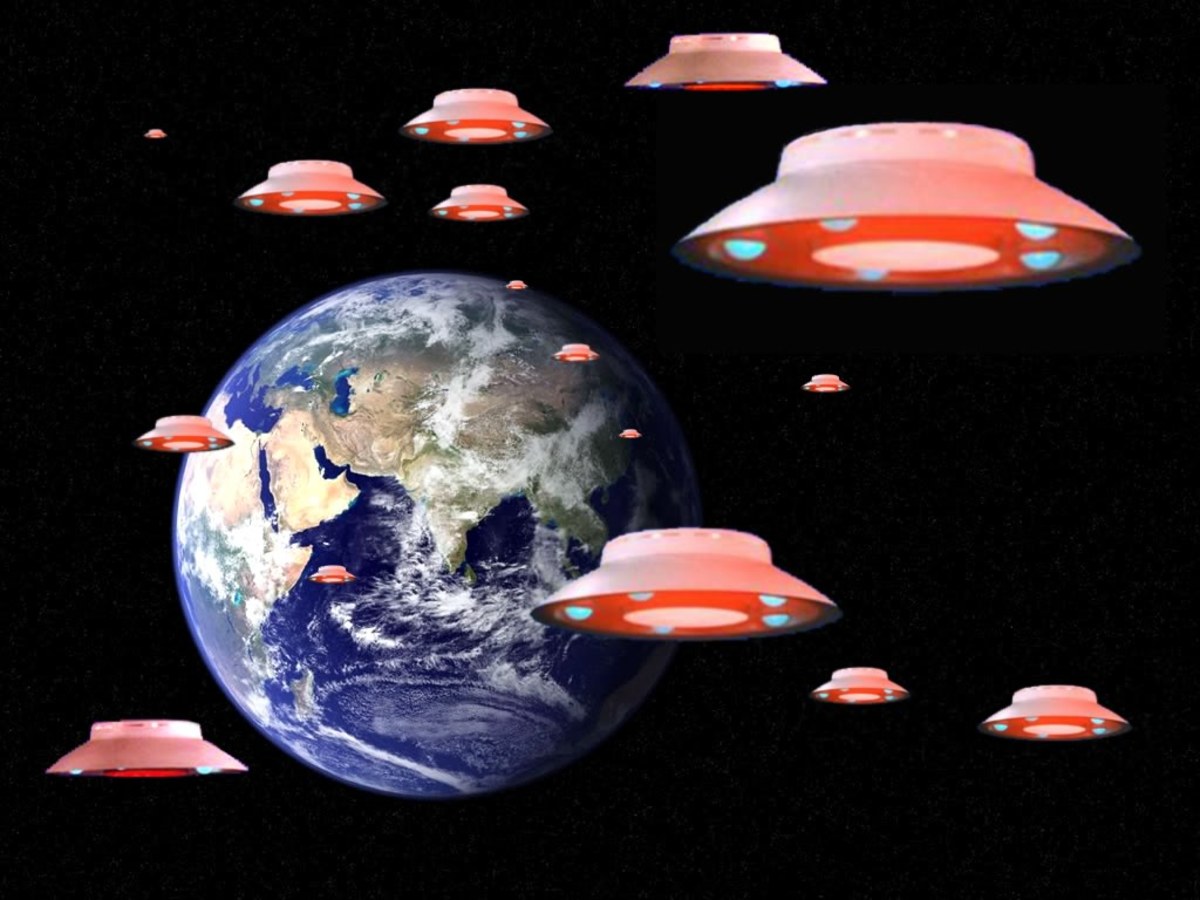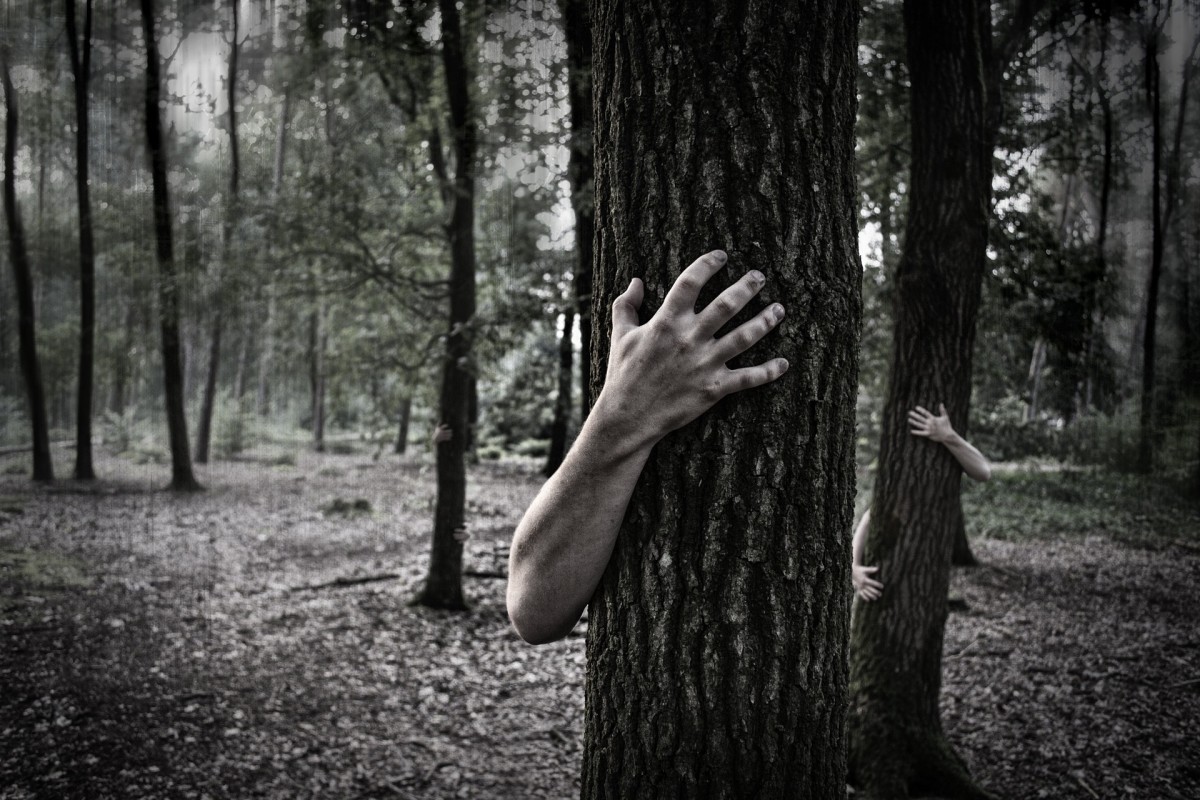The Vampire Craze (Get Into It)
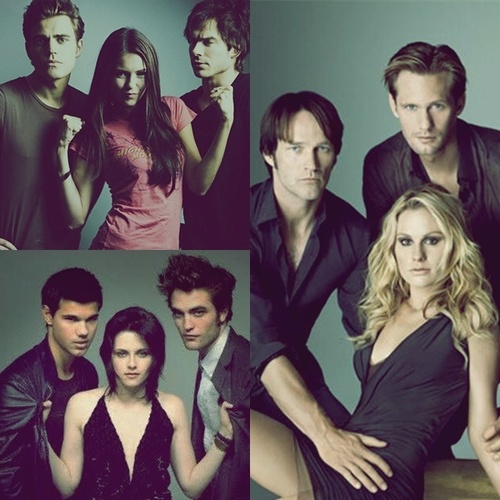
The day I walked into the store and spied with my little eye “Vampire” perfume I knew that the phrase “vampire crazed” was no longer just a notion, but it was very real, impossible to ignore, and had exploded before our very eyes. Western civilization has been saturated with the blood sucking creatures of the night’s presence for a few years now and surprisingly, it’s still not died down. The whole vampire phenomenon is still being shoved down all our throats, like it or not.
The thing is, vampires have been reinvented. They’re not longer just night stalkers, lurkers that you run away from, the thing that you propel with garlic and crosses. No. Those vampires (most of them anyway) have been neutered and sedated. They’ve been knocked off their pedestals, or depending on who you are and how you see it, they’ve been put on one. Don’t get me wrong, not all of them are bad. At least, I don’t think so. Instead, you could say they’re just different. They’re no longer one dimensional monsters, nor are their stories still thin and relegated to the night only. Plenty of talented writers have went to pen and paper (or fingers to keyboard) and not only given them personalities, but interesting histories along with stories that keep us tuned in and riveted. Come to think of it, maybe being neutered and sedated isn’t all that bad.
Not only are the bookshelves rife with their newest fictional accounts and adventures, but so is the internet. There is also the matter of that one series of books that started this whole vampire craze by Stephanie Meyer that is mentioned and copied the most. You can’t run a vampire search on Google without coming across a site dedicated to telling you in how many ways the Twilight saga sucks, but for just as many of those that hate it, there are still the millions of people who love it.
But let’s try and start from the beginning, shall we?
Let’s start at circa 1996-1997...There had been other shows centered around vampires for years, but Joss Whedon came onto the scene and did a little reinvention of the creature. When he was done writing and molding his characters, a hero named Buffy was born. And she wasn’t just any hero. She was a girl. A young girl. Beautiful, strong (both in courage and wielding a little supernatural physical strength of her own), vulnerable, and with the weight of the world on her tiny little shoulders. She came along when we needed her most at a time when we didn’t even know we’d wanted her at all, and in the end she’d stayed around for 8 whole seasons for us to enjoy. Still, it wasn’t Joss Whedon and his phenomenal femme fatale that caused all this ruckus, nor was it its spin-off series Angel,that was also based around vampires, even though they all fit the criteria of what’s hot right now in the young adult genre.
The thing is, there was plenty of vampire fiction that came out just a couple of years before the Twilight series was released and gained major popularity after the huge success of that particular series. L.J. Smith’s young adult series The Vampire Diaries had been released in the early 1990s, but was re-released just a few years later when Julie Plec and Kevin Williamson created the television show in its namesake. Whereas most vampire television shows were usually met with trepidation when they were introduced to the public, since they weren’t exactly sure who their audience was, Plec and Williamson knew they had one right off the bat. The show came out during a time when teenage girls were practically salivating over the undead fang having species, not to mention the ones who’d been fans of the books before.
Then came the HBO TV show True Blood based on the Southern Vampire (Sookie Stackhouse) novels by Charlaine Harris that’d come out a couple of years before Twilight had. Instead of honing in on a teen audience this time, the show opted for a definite adult viewing with more sex/nudity, expletives, and outrageousness than the stories for their teen counterparts.
For all the other vampire shows and movies over the years that’d been introduced to little or moderate enthusiasm, it seems all they’d needed was to wait a little bit longer. Or come up with fresher material. In between the time of Angel being cancelled, and before the great explosion of the fangs, CBS wanted to try and introduce a little show called Moonlight. Bad move. For one thing, it was a remake. My personal theory was that they were trying to cash in on the success of Angel, which was (and still is) in rotation on TNT, years after it went off the air. People had been still clamoring for more when it came to Buffy and Angel fandom, but it seems that Whedon knew just when to pull his creations--before they ran out of storylines and before anyone was sick of the shows themselves. Most of the vampire shows that have come out as of late have been, for the most part, originals, playing on the authors’ imaginations who recreated them and their stories, breathing life into something that was stale…and undead. Moonlight, as a lot of people liked to point out, didn’t “copy” Angel, but it was a remake of the 1970’s show entitled Forever Knight (which I’ve never watched). The argument, however, didn’t work in favor of the show in my opinion, but against it. The character Angel, on the show of the same name, had also been a private investigator, and it’d also been the profession of the main character of Forever Knight. My question is: So was Moonlight a remake of a remake, or a remake of the original? It made no sense to make such a copycat move. Imagine if in 10 years there was a remake of True Blood was successful, and then 5 years after that another show that was very similar. The concept would be very tired by then, especially if there wasn’t a lot of thought put into what was being put out to the audience that was watching. Moonlight did nothing to revive any hype around vampires at all. I watched an episode or two and it was slow moving and boring. It introduced nothing that we hadn’t seen before. David Boreanaz, who played Angel, was not only great eye candy, but he’s also a very good actor; not to mention most of us were familiar with his character from the series Buffy. The lead actor in Moonlight was average looking, at best, and the storyline was so lackluster I couldn’t tell how good of an actor he was because there wasn’t much for him to work with that I can recall. I think a lot of it was that during that people weren’t sure how far they could push the envelope. Sure, they had a few people writing vampire novels, and then there were the old Anne Rice standbys that one could always refer to when trying to come up with a vampire plot and characters, but there was nothing that was pushing the genre along into a brave new world of entertainment. Witches were always a safe bet when you wanted to introduce another supernatural/paranormal species in the same spectrum of heroism, but rarely did these stories include any other type of species worth mentioning. There were demons on the show Charmed, and on both Angel and Buffy, but rarely did the protagonists circle include any other creatures of the extraordinary existence. Demons were always a safe bet because the heroes and heroines needed nemeses that were also worthy opponents, but also wouldn’t bore their audiences that tuned in every week to watch. Charmed may not have been a show centered around vampires (although a few were featured here and there over the years), but it was one in the supernatural spectrum that was another remarkable example of how willing people took to shows with paranormal outlines so long as the concept was fresh and interesting. I’m sorry to say Moonlight was neither. It even felt like a remake that wasn’t telling a story anyone cared about tuning in to watch. But at least it was better than the Charlie’s Angel’s remake they tried to push on us not too long ago--I know it has nothing to do with the subject that I’m on (aside from shows being remade), but that was one remake that was so bad it made me shudder.
I think that the reason the new shows have been successful so far is because not only do they have exceptionally talented writers on their teams, but they’re not afraid to push where content is concerned. It’s not just good and bad anymore. Like regular people in real life, the characters have layers that are peeled away episode by episode--and that goes for both the humans and the supernatural creatures in these shows. It’s also no longer just vampires, ghosts, and witches anymore. They’ve reinvented werewolves; there are also fairies, shape shifters, doppelgangers, and hybrid species. Because when the vampire craze started people began to hunger for more stories centered around supernatural creatures and that led to other shows taking on the task of what we used to know as one thing, and making it interesting for the format of a TV show. In turn, we now have The Walking Dead, which centers around zombies, and TV shows that have reinvented fairy tales and mermaids as well.
Beyond the TV shows and movies, there has been a lot of attention being paid to indie authors making money from this genre of young adult paranormal as well; Several of whom have copied Stephanie Meyer’s plotline for her book Twilight and passed it off as their own stories. But for every author who’s copied a more popular idea, there are others who’ve come up with their own paranormal tales and are available on Smashwords.com and Amazon.
For as many people who complain about the vampire books, shows, and movies, there are others who’ve been swept up in its wake and are enjoying the ride. A lot of people don’t want to admit it, but Twilight’s success really did pave the way for a lot of what we’re seeing right now. People started putting paper to pen and coming up with concepts that’d never been introduced before or they’ve been putting their own spin to them. If we’re honest about it, the success of the young adult vampire stories spawned an interest in a genre that people hadn’t toyed with in years. I don’t think there’s ever been this many supernatural stories being told at once and the public is still clamoring for them. Fiction isn’t just having romance as escapism anymore, but it’s escaping to whole new worlds in impossible situations. No matter how you decide to look at it, people’s interests in the newly invented vampires had a lot to do with that. I, for one, didn’t embrace the initial craze with open arms, but with reluctance. In the end, it sucked me in, and to tell you the truth, I’m loving it now and for however long it lasts.

